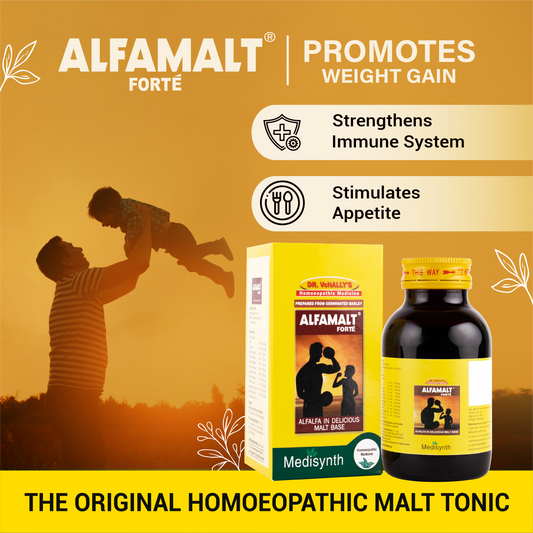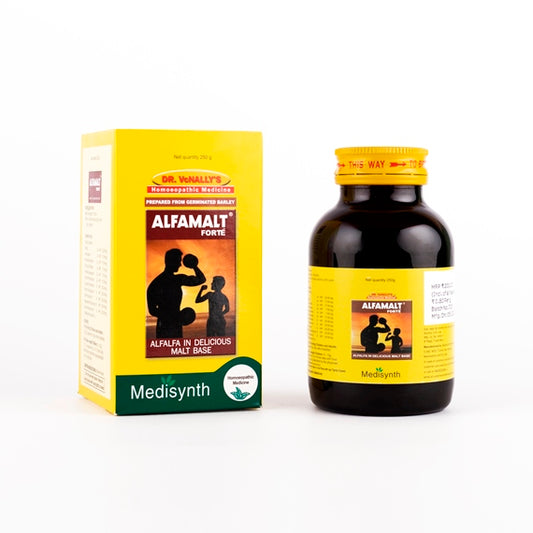8 Common Nutritional Deficiencies and How to Avoid Them

Nutritional deficiencies are a significant global health concern that affects millions of individuals, regardless of age, gender, or socioeconomic status. These deficiencies occur when the body does not receive enough essential nutrients—vitamins, minerals, proteins, fats, and carbohydrates—that are critical for maintaining optimal health and functioning.
While the causes of nutritional deficiencies vary from poor dietary choices, limited access to diverse food sources, or underlying medical conditions, the consequences can be severe. These include weakened immune function, developmental delays, increased susceptibility to chronic diseases, and impaired physical and cognitive growth.
In many parts of the world, nutritional deficiencies are prevalent due to a combination of malnutrition and inadequate food security, but even in developed countries, poor eating habits, sedentary lifestyles, and misinformation about nutrition contribute to the problem.
In this article, we will explore the various types of nutritional deficiencies, their causes, and their impact on individual and public health. We will also highlight preventive measures and strategies to ensure adequate nutrient intake, with a focus on both dietary changes and public health initiatives aimed at reducing these deficiencies on a global scale.
8 of the Most Common Nutritional Deficiencies
While there are a lot of nutritional deficiencies and it depends on each and every individual as to what is found in insufficient quantity in their body, we can definitely say that there are 8 nutrients which are commonly found as deficient in most people and they have to incorporate food habits or take supplements for the same. They are as follows:
1. Iron Deficiency
Iron is crucial for the production of hemoglobin, which carries oxygen in the blood. Iron deficiency is often caused by poor dietary intake, excessive blood loss (e.g., heavy menstruation or gastrointestinal bleeding), or poor iron absorption.
2. Vitamin D Deficiency
Vitamin D is essential for bone health and calcium absorption. It is mainly obtained from sunlight, but dietary sources like fatty fish, egg yolks, and fortified foods can also provide it. Deficiency can result from limited sun exposure, especially in areas with long winters or for people with darker skin, as well as inadequate dietary intake.
3. Vitamin B12 Deficiency
Vitamin B12 is vital for red blood cell production and nerve function. It is primarily found in animal products, so vegetarians and vegans are at higher risk of deficiency. Malabsorption issues or certain medications can also impair vitamin B12 absorption.
4. Calcium Deficiency
Calcium is crucial for bone health, muscle function, and nerve transmission. Deficiency can occur due to insufficient dietary intake, particularly in those who avoid dairy or have lactose intolerance, or because of conditions that interfere with calcium absorption.
5. Vitamin A Deficiency
Vitamin A plays a crucial role in vision, immune function, and skin health. It is commonly found in liver, fish, and dairy, as well as in plant foods like carrots and leafy greens (as provitamin A carotenoids). Deficiency often occurs in regions where diets are poor in animal-based foods and fruits and vegetables.
6. Magnesium Deficiency
Magnesium is involved in over 300 biochemical reactions in the body, including muscle and nerve function, and energy production. It is found in nuts, seeds, whole grains, and leafy green vegetables. Deficiency can occur due to poor dietary intake, certain medications, or gastrointestinal conditions.
7. Folate (Vitamin B9) Deficiency
Folate is essential for DNA synthesis and red blood cell production. It is found in leafy greens, legumes, and fortified grains. Deficiency is particularly common in pregnant women, individuals with malabsorption issues, or those with poor dietary intake.
8. Iodine Deficiency
Iodine is crucial for thyroid hormone production, which regulates metabolism. The primary sources of iodine are iodized salt, seafood, and dairy. Deficiency is common in areas where iodine-rich soil and food are not available, and where iodized salt is not used.
-
Iron Deficiency
- Include more iron-rich foods in your diet, such as red meat, poultry, fish, beans, lentils, tofu, and fortified cereals.
- Vitamin C enhances iron absorption, so consume citrus fruits, bell peppers, broccoli, or tomatoes with iron-rich meals.
- Limit the consumption of coffee, tea, and calcium-rich foods around iron-rich meals, as they can inhibit iron absorption.
- If you're at high risk (e.g., pregnant women or individuals with heavy menstrual cycles), talk to a healthcare provider about iron supplements.
- Vitamin D Deficiency
- Spend time outdoors in the sun for 10–30 minutes a few times a week, depending on your skin type and location.
- Include foods such as fatty fish (salmon, mackerel), egg yolks, fortified dairy products, and fortified plant-based milks.
- If you're at risk of deficiency (especially during winter months or if you live in regions with limited sunlight), vitamin D supplements can help maintain adequate levels.
- Many foods, such as breakfast cereals, orange juice, and plant-based milks, are fortified with vitamin D.
- Vitamin B12 Deficiency
- Vitamin B12 is found in meat, fish, eggs, dairy, and poultry. Ensure these foods are a regular part of your diet.
- Consider B12-fortified foods (such as plant-based milks and breakfast cereals) or take a vitamin B12 supplement.
- If you have digestive issues, such as celiac disease or Crohn's disease, or if you're taking medications that affect B12 absorption (like proton pump inhibitors), talk to your doctor about supplementation.
- Calcium Deficiency
- Include dairy products (milk, yogurt, cheese), fortified plant-based milks (almond, soy), leafy green vegetables (kale, bok choy), tofu, and almonds in your diet.
- Get Enough Vitamin D: Vitamin D helps with calcium absorption, so ensure you're getting enough vitamin D through sun exposure, diet, or supplementation.
- Consider Supplements: If you're not getting enough calcium from food sources, speak with a healthcare provider about calcium supplements.
- Vitamin A Deficiency
- Incorporate more orange and yellow vegetables (carrots, sweet potatoes, butternut squash), dark leafy greens (spinach, kale), and liver into your diet. These foods are rich in beta-carotene, which the body converts to vitamin A.
- Liver, fish, and dairy products provide preformed vitamin A, which the body can use directly.
- A varied diet rich in fruits and vegetables ensures adequate intake of vitamin A.
- Magnesium Deficiency
- Include more nuts (almonds, cashews), seeds (pumpkin seeds, flaxseeds), whole grains (brown rice, oats), leafy greens (spinach), legumes, and dark chocolate.
- Both can deplete magnesium levels in the body.
- If you have an underlying condition that impairs magnesium absorption (like Crohn’s disease or kidney disease), magnesium supplements might be recommended by your doctor.
- Folate (Vitamin B9) Deficiency
- Include more leafy greens (spinach, kale), legumes (beans, lentils), fortified cereals, citrus fruits, and avocados in your diet.
- Folate is especially important during pregnancy to prevent neural tube defects. Pregnant women should take a prenatal vitamin that includes folic acid, the synthetic form of folate, as recommended by a healthcare provider.
- Many grain products like pasta, bread, and rice are fortified with folic acid, which helps meet daily needs.
- Iodine Deficiency
- One of the easiest ways to prevent iodine deficiency is to use iodized salt in cooking and at the table. Most table salts in the U.S. as well as India and other parts of the world are iodized.
- Include more seafood (fish, seaweed, shellfish), dairy products, eggs, and iodized salt in your diet.
- If you live in an area with low iodine levels in the soil (such as inland regions), or if you're pregnant or breastfeeding, iodine supplementation may be necessary, but always consult a doctor first.
In general, you can also follow the below mentioned tips to avoid any kind of nutritional deficiency.
- A varied and balanced diet that includes a wide range of nutrient-dense foods is the most effective way to prevent deficiencies.
- Adequate water intake is essential for nutrient absorption and overall health.
- Whole grains, fresh fruits, vegetables, lean proteins, and healthy fats provide a broad spectrum of vitamins and minerals.
- If you're following a vegetarian, vegan, gluten-free, or other restrictive diet, make sure you're carefully planning meals to include all essential nutrients.
- If you're concerned about a potential deficiency or have symptoms, ask your healthcare provider for blood tests to check your nutrient levels.
Best Homeopathic remedy to avoid the most common nutritional deficiencies
Alfamalt Forte
Alfamalt Forte from Medisynth is a nourishing malt-based health tonic which will remove all the common nutritional deficiencies from your body. It comes with the goodness of Alfalfa with the richness of the malt.
This sweet and delicious formula acts even better in synergism with malt, and provides quick results in cases of under-nourishment. Alfamalt is an ideal homeopathic malt tonic for under-weight children and elderly people.
It comes with natural homeopathic ingredients such as Alfalfa, Avena Sativa, Cinchona Officinalis, Hydrastis Canadensis, Withania Somifera, Acidum Phosphoricum, Ferrum Phosphoricum, Kali Phosphoricum, Calcarea Phosphorica, Magnesium Phosphoricum & Natrum Phosphoricum which are known to avoid the most common nutritional deficiencies.
Conclusion
As we mentioned earlier, nutritional deficiencies are very common in people all over the world and the only cure to this is to eat a balanced diet which packs all the nutrients but we know that some people are unable to follow such a diet which is why recommend them to take the Alfamalt Forte health tonic which is malt-based and homeopathic in nature. It is advised that you take the tonic daily at least once for lasting benefits and avoid all these nutritional deficiencies in your body.
References:
- 7 Nutrient Deficiencies That Are Incredibly Common
- 7 Most Common Nutrient Deficiencies and How to Prevent
- Global, regional, and national burdens of common micronutrient deficiencies from 1990 to 2019





